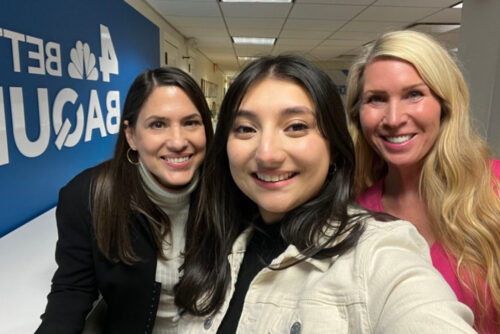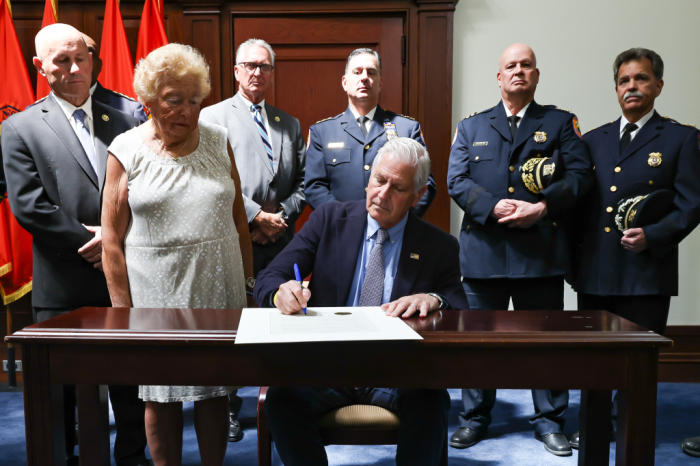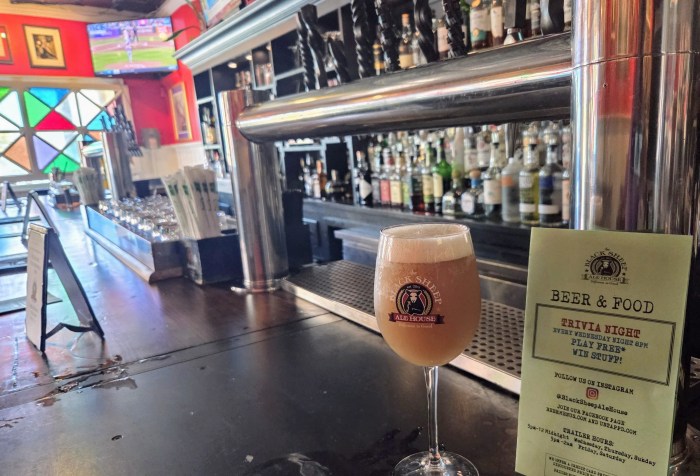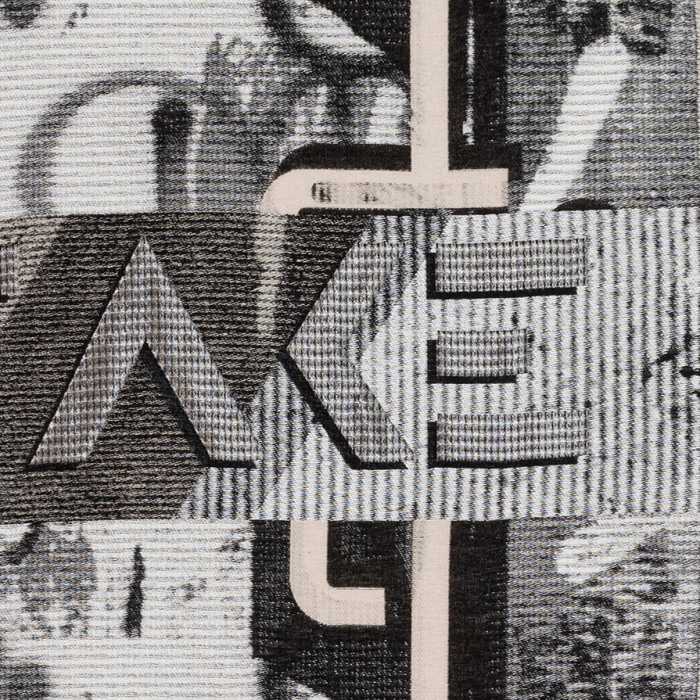It’s not every day that you encounter someone who truly seems poised to change the world. At 23 years old, two-time Gracie Award winner Fatima Moien of Valley Stream is such a person. Originally she thought she would pursue a career in law enforcement, but midway through her bachelor’s degree program, the murder of George Floyd triggered a pivot. She graduated from John Jay College of criminal justice with a bachelor’s degree in Criminal Justice and a minor in journalism and immediately began researching graduate programs.
“I realized that I’m not meant to be a field agent in the FBI. My dreams of being a police officer really aren’t meant for me. I’m meant to serve justice and the public in a different way, which is through journalism. So I researched graduate programs and found Hofstra right in my backyard. I was accepted into the Lawrence Herbert School of Communications for my master’s in journalism, and I’m graduating in a couple of weeks with that degree,” Moien said.
Moien is first-generation Pakistani American. She moved to the US with her family from Pakistan in 2002, when she was 2 years old. “I came over with my mom and my older brother. My dad had already settled in America. So we were just waiting to come over. Obviously, since we came over post-9/11, it took some time.”
It was while studying at John Jay College that Moien was urged to try being in front of the camera. She knew she wanted to be in broadcast rather than trying to make a go of it in print, but it wasn’t until another student suggested it that she gave it serious thought. “Someone told me, ‘I don’t know why you’re going to do criminal justice. You can be a lawyer. You can be a diplomat. You can be a reporter on camera,’ and that’s where my mind started shifting, and I started thinking to myself, ‘Okay, maybe I should take my time in graduate school to get on camera.’”
A professor learned of her ambitions and asked her to moderate a live show. Moien came up with her own questions and took the opportunity. She was surprised at how far her reputation had taken her. She was also dealing with the death of her grandmother, making the experience even more challenging. “I jumped to the opportunity. And obviously, months later, I didn’t realize it then but I was a nervous wreck. Every time I watch it back I cringe; that was really my first time on camera. I’m looking down at my cards. I don’t know how to look at a teleprompter and read. It was very, very new,”
Just a few short months later, she learned she had been nominated for the Alliance for Women in Media Foundation Awards, the Gracies. Moien was surprised on ABC’s The View with the Gracie with her parents by her side. The View did a whole story on her start in journalism with that first gig. “That will always be my favorite moment. I mean, there’s no other better catalysts as to making me feel all the confidence and stepping into being on air; that experience proved that it was a possibility. The fact that it aired on national television and reached all those people, I got so many messages after that about how we need more girls like me out there.”
The best part of the recognition and success she has experienced so far has been seeing her parents come around. They did not have confidence in her chosen career at first. “They were like, ‘It’s hard work. You’re going into a master’s, you’re taking out loans. This is a middle class job. Are you really sure that you want to invest in this?’ and I said, ‘yeah, let me please give me shot, give me a year. I’ll prove you wrong.’ I wanted to prove them wrong with my grades. I didn’t really think of it in this extreme. but to be given such a recognition so early on…Professionals win Gracies as well…I mean if you watch it, my dad’s voice is so shaky. My mom’s crying. They’re really feeling the feels.”
One of the highlights of her time at Hofstra was an eye-opening ten-day trip to Cuba. She was struck by how different the situation on the ground was from her preconceived ideas. They were there to learn and interview the people, and she came away with a new understanding. “As journalists, we have to push buttons and get people to answer questions. But every single question I asked, they would look back like, ‘do you think we’re dumb? Do you think we hate America? Because we don’t,’ and that was just obviously my education slapping me back in the face… We didn’t hold back in our questions, but for the most part, I will say we came back very humbled. We were told to our faces that the world is much broader and bigger than what we read in our American textbooks.”
Moien was also nominated for a Fulbright scholarship. She spent a little over a year preparing her application to go to the West Bank to teach and report. Moien cites police brutality and Palestinian identity as catalysts for her foray into journalism. Her application was submitted a week before the war broke out. She recently found out that it has been rejected. Moien speculated that it was out of protection. “I was applying for the Palestinian territories or the West Bank. I was told from the get go, ‘Are you sure you want to apply to this location in particular?’ I said, ‘I would not apply to a Fulbright anywhere else.’ Obviously it broke my heart because my hope was to literally be in the West Bank, in either Jerusalem or in one of those cities out there, and I’d be teaching English to Jewish, Arab and Muslim Palestinian students, while also reporting. That was going to be my whole plan, that’s what I pitched to the Fulbright board at Hofstra.”
Most recently, Moien completed an academic year internship at NBC New York with Doreen Geiger and Lynda Baquero of the Better Get Baquero team. She also went on to win a second Gracie.
Moien hopes to take the growth she has experienced and be a force for justice and change in the world. “I mean, all of these moments are wins, right? It’s been very cool to see how my two years panned out. I feel so much more well-rounded given the storytelling that I’ve been able to immerse myself in, in this country and elsewhere.”
Strong Signals: Award-winning broadcast journalism student set to shine

Fatima Moien (center) with Doreen Geiger and Lynda Baquero of the Better Get
Baquero team.


































